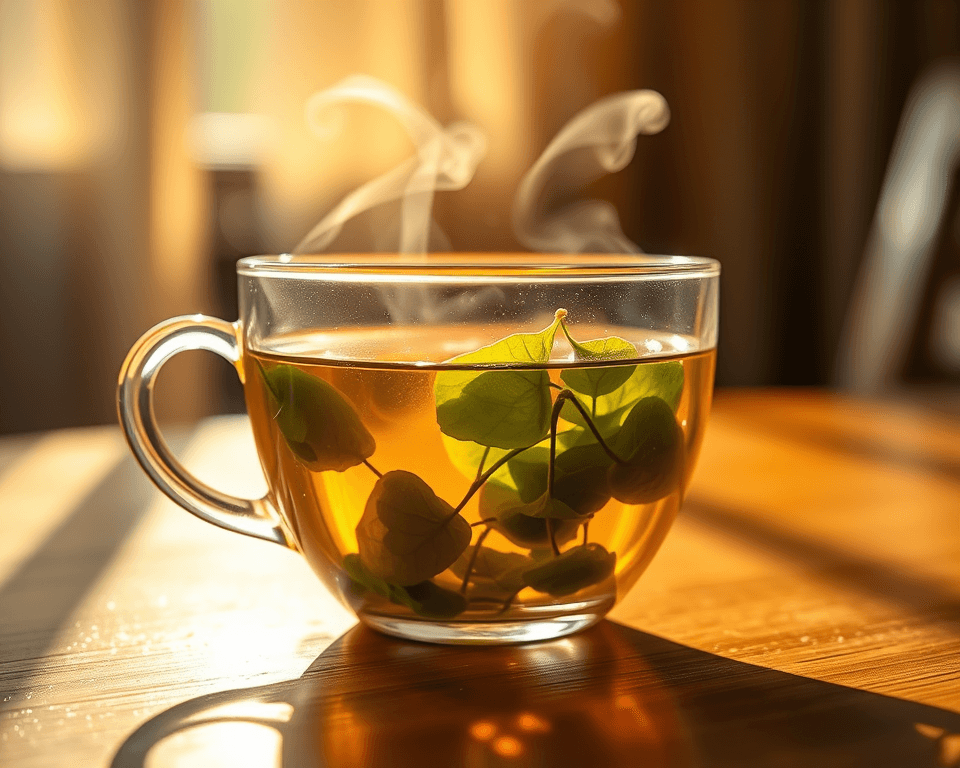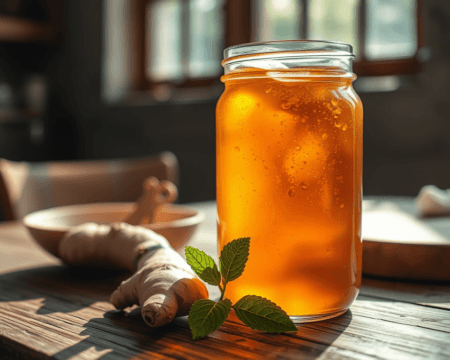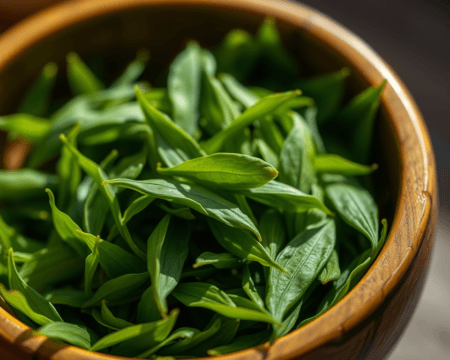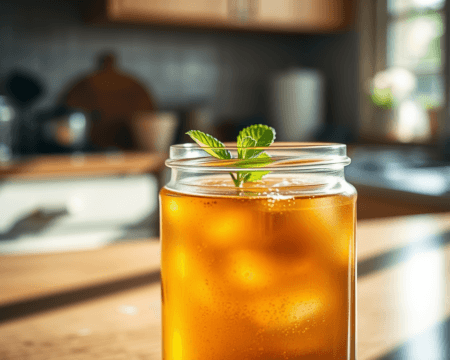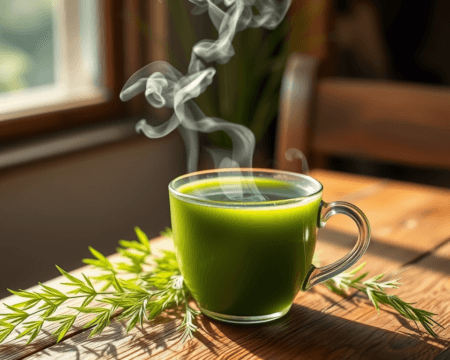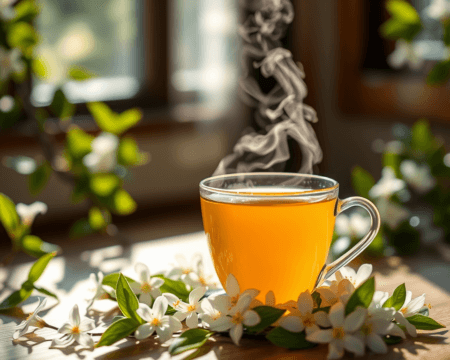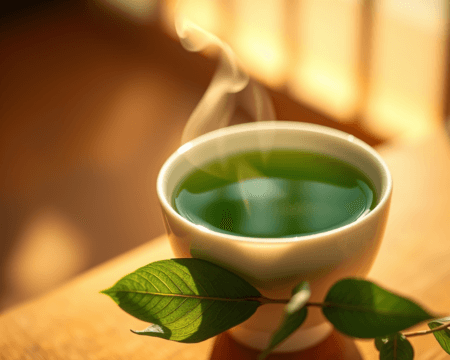Ginkgo biloba—let’s talk about a powerhouse in the herbal world. This ancient herbal remedy, hailed for its medicinal use, is making waves for its impressive benefits. Whether you’re part of the herbal tea club or just curious about natural remedies, you’re about to unlock some serious knowledge on how to prep, brew, and enjoy ginkgo biloba tea. Trust me; it’s more than just a cup of tea; it’s a potion for your mind and body.
Key Takeaways
- Ginkgo biloba tea can boost cognitive function and improve mental clarity.
- The brewing process matters; temperature and steeping time can make or break your tea.
- Get creative—there are endless variations to customize your cup!
Understanding Ginkgo Biloba
What is Ginkgo Biloba?
Ginkgo biloba is one of the oldest living tree species, dating back over 200 million years. It’s known as a “living fossil” and leaves from the ginkgo biloba plant have been used in herbal medicine for centuries. Packed with antioxidants, ginkgo leaves are the superstar of this herbal remedy. They come with a list of potential benefits that could make even the skeptics raise an eyebrow. People have turned to ginkgo for everything from enhancing cognitive function to improving circulation. The leaves contain ginkgo leaf properties that can support brain health and promote overall wellness.
Health Benefits of Ginkgo Biloba Tea
When it comes to the health benefits, we’re talking serious stuff here. Ginkgo biloba effects include improving memory, boosting mental clarity, and even promoting good circulatory health. It’s loaded with antioxidants that help fight free radicals in your body. Numerous studies have pointed toward its therapeutic properties, highlighting improvements in cognitive functions and memory retention. Imagine sipping on a hot cup of ginkgo biloba tea while giving your brain a much-needed boost.
Preparing Ginkgo Biloba Tea
Ingredients Needed
Before you can kick back and enjoy your tea, you need to gather some ingredients. Here’s what you’ll need:
- Dried Ginkgo Biloba Leaves: You can find these at local herbal shops or online. Look for trusted suppliers and organic options to ensure you’re getting high-quality leaves.
- Water: High-quality water matters. Use filtered or spring water for the best taste.
- Optional Flavorings: Get creative! You can sweeten with honey or add a squeeze of lemon for an extra zing.
Step-by-Step Brewing Process
Brewing ginkgo biloba tea isn’t rocket science, but you do want to pay attention to a few details to get the best flavor and benefits.
- Measure Your Leaves: A good starting point is about 1 teaspoon of dried ginkgo biloba leaves for every cup of water. Adjust based on how strong you want your brew.
- Heat the Water: Aim for around 190°F (88°C) instead of boiling. Too hot, and you’ll miss out on the delicacy of flavors.
- Steeping Time: Pour the hot water over the leaves and let them steep for 5 to 10 minutes. Taste it around the 5-minute mark and go longer if you prefer more intensity.
- Strain and Serve: Once it’s steeped to your liking, strain the leaves and pour it into your favorite mug. You can enjoy it as is or add your optional flavorings.
Variations in Preparation Methods
You think ginkgo tea can’t get any better? Think again. There are endless variations in how you can prepare this herbal delight. Why not try iced ginkgo tea for those warm summer days? Just brew it hot and let it chill. Want to spice it up? Blend it with other herbal teas, like peppermint or chamomile. The fusion possibilities are endless and will cater to any taste palate.
Considerations and Precautions
Potential Side Effects of Ginkgo Biloba Tea
Before you jump headfirst into your ginkgo journey, it’s essential to understand the potential side effects. While ginkgo biloba is generally safe for most folks, some might experience adverse effects like stomach upset, headaches, or allergic reactions. If you’re on blood thinners or have any medical conditions, consulting a healthcare professional is a must. Always consider safe usage and follow dosage guidelines.
Tips for Sourcing High-Quality Ginkgo Biloba Leaves
Finding top-notch ginkgo leaves can make all the difference. Look for trusted suppliers who offer organic options to ensure your tea is as effective as possible. Freshness is vital, so check for freshness indicators on packaging. Look for brands with solid reputations and consider trying local herbal shops if you’re into supporting small business.
Enhancing Ginkgo Biloba Tea Experience
Flavor Enhancement Ideas
If you want to elevate your ginkgo tea game, consider pairing it with fruits. Adding slices of fresh apples or pears not only looks beautiful but can also enhance the flavors. Sweeteners like honey or a dash of cinnamon can turn your herbal brew into a delightful treat. The key here is to enhance taste while maintaining the natural benefits of ginkgo.
Combining Ginkgo Biloba with Other Herbal Teas
Don’t stop at just ginkgo. Blend it with other teas to create something unique and beneficial. Combining ginkgo with calming herbs like chamomile can help you wind down after a long day. The synergistic effects of multi-herb recipes can amplify the benefits, supporting your overall wellness. And let’s be honest, that’s what we’re here for, right?
There you have it! With this guide in your pocket, you’re ready to master the art of ginkgo biloba tea making. So grab some leaves, heat up that water, and treat yourself to a cup of nature’s goodness. Embrace the benefits and flavor variations—you’ll never see tea the same way again. Cheers to your health and happiness!
Frequently Asked Questions
What are the health benefits of Ginkgo biloba tea?
Ginkgo biloba tea is known for enhancing cognitive function, improving memory and mental clarity, and potentially reducing anxiety. It may also promote general well-being and improve circulation due to its antioxidant properties.
How should I brew Ginkgo biloba tea for the best results?
To brew Ginkgo biloba tea effectively, use water heated to about 190°F (88°C) and steep the leaves for 4-6 minutes. This temperature helps release the beneficial compounds without making the tea bitter.
Can I drink Ginkgo biloba tea every day?
Yes, Ginkgo biloba tea can be consumed daily, but moderation is key. Drinking 1-2 cups a day is generally considered safe for most people. It’s best to consult with a healthcare provider if you have any medical conditions or concerns.
Are there any side effects of consuming Ginkgo biloba tea?
While Ginkgo biloba tea is safe for most, some individuals may experience side effects like headaches, dizziness, or gastrointestinal discomfort. It’s advisable to start with small amounts to see how your body reacts.
Can I customize my Ginkgo biloba tea?
Absolutely! You can customize your Ginkgo biloba tea by adding flavors like lemon, honey, or ginger. Experimenting with different brewing times and complementary herbs can also enhance the taste and benefits.
Is there a specific time of day that is best to drink Ginkgo biloba tea?
The best time to drink Ginkgo biloba tea depends on your preferences. Many people prefer it in the morning for mental clarity throughout the day, while others enjoy it in the evening to relax and wind down.
Is Ginkgo biloba tea suitable for everyone?
Ginkgo biloba tea is not recommended for pregnant or breastfeeding women, as well as individuals on blood-thinning medications. Always consult with a healthcare professional before introducing new herbal teas into your routine.
Where can I buy Ginkgo biloba tea?
Ginkgo biloba tea can be found at health food stores, specialty tea shops, and online retailers. Make sure to choose a reputable brand to ensure quality and potency.
How can I store Ginkgo biloba tea to maintain its freshness?
To maintain the freshness of Ginkgo biloba tea, store it in a cool, dry place away from sunlight. An airtight container is ideal to prevent moisture and preserve flavor and potency for longer.




